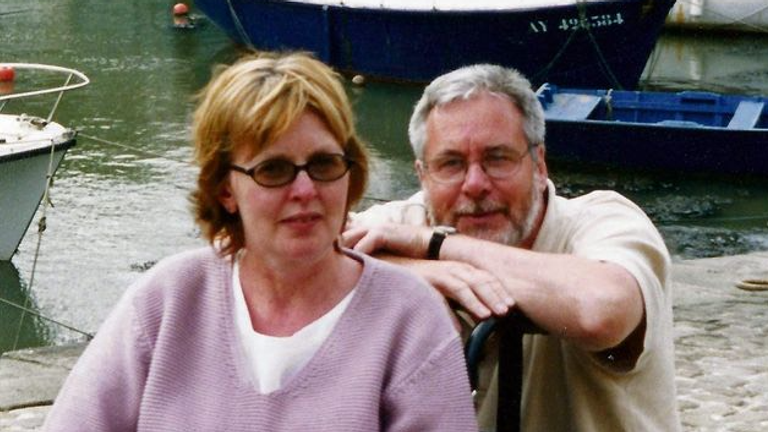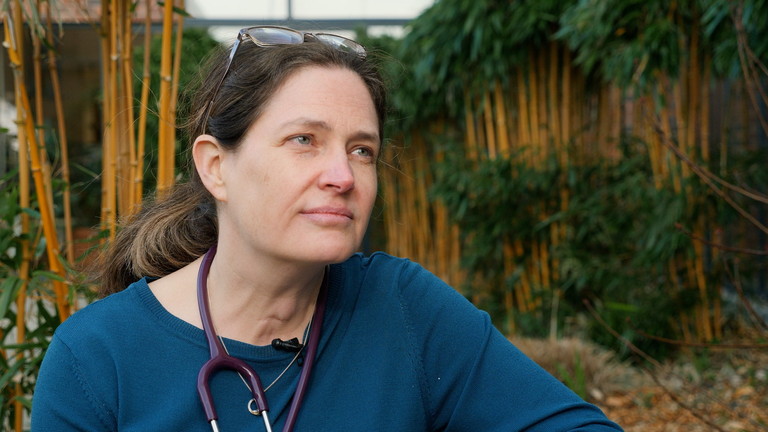A parliamentary committee will today recommend legislation to the Irish government to introduce euthanasia and euthanasia for people who have just six months to a year to live.
The Oireachtas [Irish parliament] The Committee on Euthanasia will issue a final report expected to push for euthanasia to be allowed euthanasia for those who have been diagnosed with an incurable, irreversible, progressive and advanced terminal disease and whose suffering cannot be alleviated in a way that they consider “tolerable”.
The deadline is usually six months, and twelve months for neurodegenerative diseases.
Any euthanasia would be supervised by a medical professional, but the committee’s report will also include a conscience clause allowing any doctor, nurse or other medical staff to abstain from such a duty.
Suicide is currently legal in Germany IrelandHowever, assisted suicide is not the case, although a prison sentence of up to 14 years can be imposed as a deterrent.
That was the risk Tom Curran faced when his partner Marie Fleming asked him for help ending her life in December 2013.
“She wasn’t afraid of dying, but she didn’t want a bad death,” Mr Curran told Sky News.
“She didn’t want to linger, and she didn’t want the people around her to have to witness that and be remembered that she was in constant pain, that sort of thing.”
Ms Fleming suffered from multiple sclerosis (MS), which had worsened to the point where she wanted to take her own death into her own hands.
“I will not be there”
When Mr Curran tried to discuss adapting their holiday home in Arklow, County Wicklow, to suit her medical needs, his partner told him: “I’m sure it won’t be necessary, I won’t be around.”
When he asked her, “What do you mean?”, she replied, “If life gets to the point where it’s no longer worth living for me, then I don’t want to continue.”
Mr Curran told Sky News: “To me it was completely sensible. I had had time to think about it. I concluded that any sensible person would have this option. They wouldn’t necessarily take it, but she wanted that option there.”
Aware of the legal risks, the couple filed a case in the Supreme Court and then the Supreme Court, but were unable to force a change in the law. They joined Dignitas, the Swiss euthanasia service, but travel was ruled out because Ms Fleming had difficulty swallowing the necessary medication.
Read more:
Five stories that highlight the euthanasia debate
Starmer promises euthanasia vote if he wins election
“Marie died peacefully”
The couple ended up purchasing medication online from Mexico, which was then delivered to their home. A particularly difficult time just before Christmas 2013 led to her finally deciding to end her life.
“All I can really say without getting into trouble is that Marie died peacefully, as she wanted,” Mr. Curran recalled. “She died no longer but very peacefully in her own bed at home.”
He called today’s report a “big step forward” in the right direction and acknowledged that Ms Fleming’s election campaign had changed the public conversation in Ireland.
“A burden for terminally ill people”
But many are still against it, including doctors working in palliative care.
Dr. Faith Cranfield, a palliative care consultant who works at a hospice in Blanchardstown, west Dublin, believes the legislation would serve to increase pressure on terminally ill people to end their lives.
“Yes, I definitely do,” she said.
“When people are sick, they can feel overwhelmed and desperate. If one were to introduce laws stating that a certain group in society should consider early death as a solution to this plight, then that would be a regressive solution. That means “not helpful and that is a burden for people who are already terminally ill.”
The right to choose
Taoiseach Leo Varadkar will consider the committee’s recommendations, but with only a year left in his coalition government and many expecting an election in late autumn, he is unlikely to introduce controversial legislation before the election. The drafting of any legislation will most likely be the responsibility of the next government.
Mr Curran believes the legislation could take “years” to pass. But he maintains there is public support behind the move. “I think Marie had a lot to do with it,” he said.
“She humanized the whole concept of a right to vote, and that’s really all we’re asking for — a right to vote.”
Anyone feeling emotionally distressed or suicidal can contact Samaritans for help on 116 123 or in the UK email [email protected] [email protected] In Ireland. In the US, call your nearest Samaritans location or 1 (800) 273-TALK

